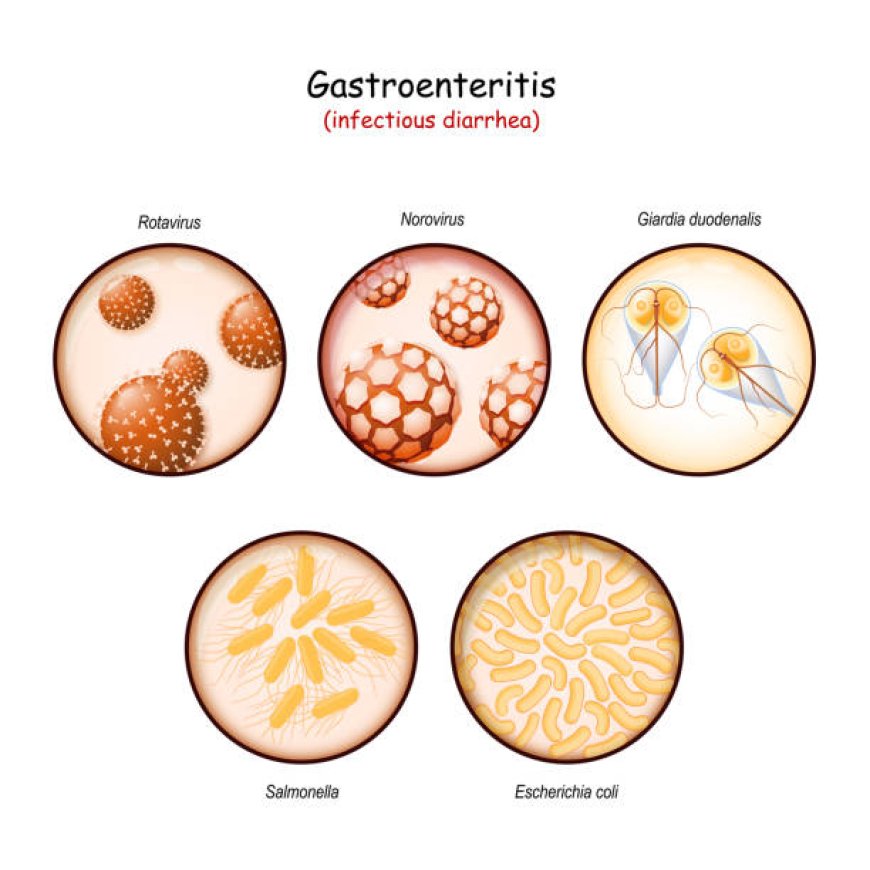Protect Yourself: How to Avoid Norovirus Infections
Protect yourself from norovirus infection with our essential tips and practices. Stay healthy and avoid this common illness.Norovirus is a very contagious virus that causes vomiting and diarrhea. Anyone can get infected and sick with norovirus.
Norovirus is a highly contagious virus that is often responsible for outbreaks of gastrointestinal illness, particularly in crowded or enclosed environments such as cruise ships, schools, and nursing homes. Despite its prevalence, there is still much misunderstanding about this virus. In this article, we'll delve into what norovirus is, its symptoms, how it spreads, and most importantly, how to prevent it.
What is Norovirus?
Norovirus, sometimes called the "stomach flu," is a type of virus that causes gastroenteritis, which is inflammation of the stomach and intestines. This inflammation leads to symptoms such as nausea, vomiting, diarrhea, and stomach cramping. While norovirus is often referred to as the "stomach flu," it is not related to influenza, which is a respiratory illness caused by a different virus.
Symptoms of Norovirus
The symptoms of norovirus infection usually develop 12 to 48 hours after exposure to the virus and typically last 1 to 3 days. The most common symptoms include:
Nausea
Vomiting
Diarrhea
Stomach cramping
Low-grade fever
Body aches
These symptoms can be quite severe, leading to dehydration, especially in vulnerable populations such as young children, older adults, and individuals with weakened immune systems.
How Norovirus Spreads
Norovirus is highly contagious and can spread easily from person to person. The virus is found in the stool and vomit of infected individuals, and it only takes a small amount of the virus to make someone sick. Common ways that norovirus spreads include:
Direct Contact: Touching surfaces or objects contaminated with norovirus and then touching the mouth, nose, or eyes.
Consuming Contaminated Food or Water: Eating food or drinking liquids that are contaminated with norovirus.
Airborne Transmission: Norovirus particles can become airborne when an infected person vomits, leading to inhalation of the virus.
Prevention Strategies
Preventing norovirus infection relies on good hygiene practices and taking precautions to limit its spread. Here are some key strategies:
Frequent Handwashing: Wash hands with soap and water for at least 20 seconds, especially after using the restroom, changing diapers, and before preparing or eating food.
Disinfect Surfaces: Use a bleach-based household cleaner to disinfect surfaces that may be contaminated with norovirus, especially in areas where someone has been sick.
Avoid Contaminated Food and Water: Be cautious when consuming food or water, especially when traveling to areas where sanitation may be an issue.
Stay Home When Sick: If you have symptoms of norovirus, stay home from work, school, or other activities to prevent spreading the virus to others.
When to see Adoctor
If you suspect you have norovirus, it's a good idea to see a doctor if:
Dehydration: You're unable to keep fluids down due to vomiting and diarrhea, which can lead to dehydration.
Persistent Symptoms: Symptoms are severe, persistent, or don't improve after a few days.
Underlying Health Conditions: You have a weakened immune system or other medical conditions that could make norovirus more serious.
Pregnancy: If you're pregnant, it's especially important to seek medical advice.
Severe Symptoms: Symptoms include severe abdominal pain, blood in your vomit or stool, or signs of dehydration like dizziness, rapid heartbeat, or very dry mouth.
Otherwise, norovirus typically resolves on its own within a couple of days with rest, hydration, and good hygiene practices.
Treatment
There is no specific treatment for norovirus, and antibiotics are not effective against viral infections. The primary focus of treatment is on managing symptoms and preventing dehydration. This includes drinking plenty of fluids, especially oral rehydration solutions that contain electrolytes to replace those lost through vomiting and diarrhea.
Norovirus Outbreaks
Norovirus outbreaks are not uncommon, particularly in settings where people are in close proximity, such as cruise ships, schools, and nursing homes. When an outbreak occurs, swift action is needed to control its spread. This often involves isolating sick individuals, thorough cleaning and disinfection of affected areas, and promoting good hygiene practices among those who may be at risk.
Conclusion
Norovirus is a highly contagious virus that can cause significant illness, particularly in vulnerable populations. Understanding how it spreads and taking preventive measures such as frequent handwashing, disinfecting surfaces, and staying home when sick, are key to reducing its impact. While norovirus outbreaks can be challenging, early recognition and proper management can help limit their spread and ensure a speedy recovery for those affected.
What's Your Reaction?










































